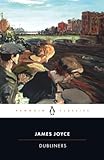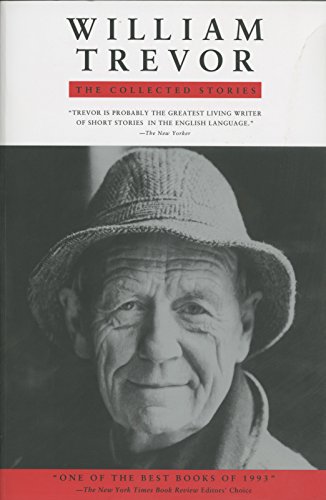This is a weird, minor one, but very enjoyable. If William Trevor were The Beatles, (he’s not, Chekhov is) “Two More Gallants” would be “Bungalow Bill” or “Why Don’t We Do It in the Road”—a low-stakes fucking-around number that offers pleasures, but primarily exists as an expression of the artist blowing off steam before getting back to the work of Art.
 “Two More Gallants” of course references James Joyce’s story “Two Gallants” from Dubliners. Joyce’s story appears in Trevor’s story as a plot device: a man named Heffernan, an aging PhD student, develops a grudge against an elderly professor named Flacks, who he believes slighted him in class; Heffernan’s friend and confidant, FitzPatrick, has a flat with a elderly maid whom Heffernan begins taking into his confidence; we learn that Heffernan has been coaching her to tell a story: that she was the inspiration for Joyce’s “Two Gallants.” She tells this story to Professor Flacks, who proceeds to deliver it as a lecture to the annual meeting of the Joyce Society, whereupon Heffernan reveals it to be a hoax, destroying Flack’s professional standing. If all of this sounds weird and confusing, it is, but in a fun way, reading to figure out why we’re being told this strange story.
“Two More Gallants” of course references James Joyce’s story “Two Gallants” from Dubliners. Joyce’s story appears in Trevor’s story as a plot device: a man named Heffernan, an aging PhD student, develops a grudge against an elderly professor named Flacks, who he believes slighted him in class; Heffernan’s friend and confidant, FitzPatrick, has a flat with a elderly maid whom Heffernan begins taking into his confidence; we learn that Heffernan has been coaching her to tell a story: that she was the inspiration for Joyce’s “Two Gallants.” She tells this story to Professor Flacks, who proceeds to deliver it as a lecture to the annual meeting of the Joyce Society, whereupon Heffernan reveals it to be a hoax, destroying Flack’s professional standing. If all of this sounds weird and confusing, it is, but in a fun way, reading to figure out why we’re being told this strange story.
 Part of the weirdness is that the story is told via first person by an unnamed narrator who has heard the story and became friends, for a time, with FitzPatrick. The story begins with him relating the tale of Heffernan and FitzPatrick, and he eventually enters the story as a drinking acquaintance of FitzPatrick’s. I’m normally averse to this kind of first-person narration that uses the narrator as a camera/microphone that picks up what the third-person characters are doing. This is frequently Trevor’s mode of first-person storytelling, a mode that usually makes me feel like the narrator could simply be elided and the story told as third-person. Trevor is resolutely a third-person writer, a master of that form, and like many third-only people, his first-person is often clunky and rigged up. (As an aside, perhaps the most famous example and extreme of third-person-writer incapacity with first person is Jonathan Franzen’s third-person “Mistakes Were Made” section in Freedom—a desperate move justified by the narrator’s therapist suggesting she write about herself as a character.)
Part of the weirdness is that the story is told via first person by an unnamed narrator who has heard the story and became friends, for a time, with FitzPatrick. The story begins with him relating the tale of Heffernan and FitzPatrick, and he eventually enters the story as a drinking acquaintance of FitzPatrick’s. I’m normally averse to this kind of first-person narration that uses the narrator as a camera/microphone that picks up what the third-person characters are doing. This is frequently Trevor’s mode of first-person storytelling, a mode that usually makes me feel like the narrator could simply be elided and the story told as third-person. Trevor is resolutely a third-person writer, a master of that form, and like many third-only people, his first-person is often clunky and rigged up. (As an aside, perhaps the most famous example and extreme of third-person-writer incapacity with first person is Jonathan Franzen’s third-person “Mistakes Were Made” section in Freedom—a desperate move justified by the narrator’s therapist suggesting she write about herself as a character.)
Anyway, the camera thing works well here, because—here comes an obvious point—the story is a story about storytelling. It is a story about a story that Heffernan tells himself about the malevolence of a benign old professor. Heffernan refines the story by retelling it to his friend FitzPatrick. He then seeks revenge by repurposing a story of James Joyce’s and putting it in the mouth of an old woman, who tells the story to Professor Flacks, who tells it to a roomful of people, a professional gaffe that becomes a famous story in Dublin, a story the narrator heard from the secondary horse’s mouth and that he is duly retelling to us. I’m not sure there’s any deep meaning about storytelling or narration here. You could probably gin up some superficial Martin McDonagh-esque thing about the power of language or story or whatever, but I don’t sense that much depth. Mostly what I sense is Trevor having fun fucking around, making a story out of a Joyce story, and that’s enough for me.









